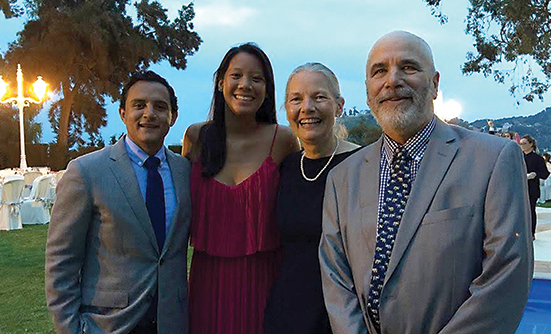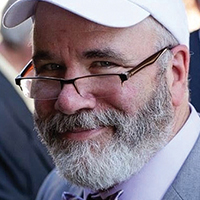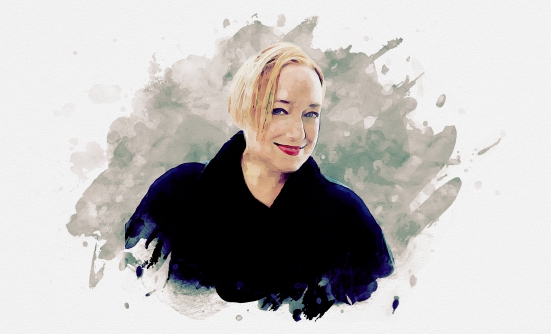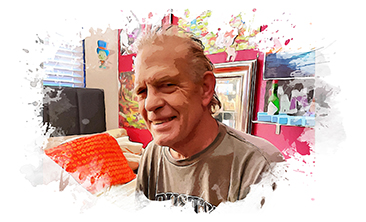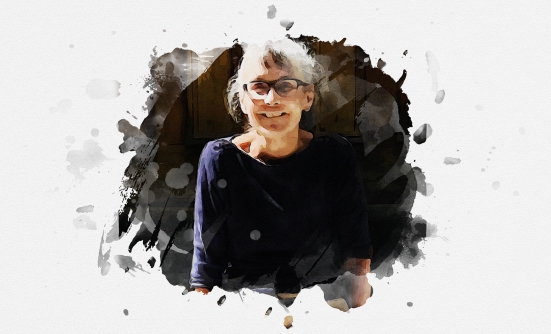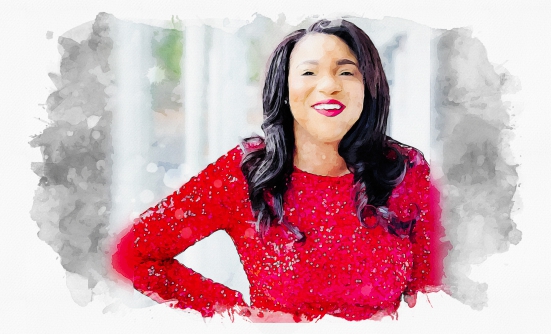On March 29, 2017, I was diagnosed with metastatic (stage IV) adenocarcinoma of the esophagus. There is no known cure for this type of cancer, and those who get it are generally expected to have a steady decline in health, culminating in death not long after diagnosis. The current first-line standard of care for this advanced cancer is a combination chemotherapy known as FOLFOX. The treatment is strictly palliative, meaning it isn’t intended to deliver a cure but only to extend the patient’s quality of life for a little longer. However, the longer a patient uses FOLFOX, the less effective it becomes, and the more the patient’s intolerance to the treatment grows.
Taking My Fate into My Hands
Given these facts, I decided to reject the palliative standard of care to pursue new, experimental treatments that held the possibility of complete remission. To do this, I knew I needed information on the genetic makeup of my unique cancer. To my surprise, when I asked my oncologist at Dana-Farber Cancer Institute in Boston when I could get access to the results of the genetic sequencing I knew they would do on my tumor, he said that Dana-Farber had no obligation to share that information with me.
I was greatly disturbed by this news, because if there was a solution, I believed we’d find it in the data. I had studied evolutionary biology at Harvard University, and I’m the founder and former CEO of Bio Economic Research Associates LLC. I knew enough to know that I wanted high-quality whole-genome sequencing done for my healthy and my cancer genomes, and I wanted access to my underlying data.
To get this, I went outside Dana-Farber and enrolled in a comprehensive cancer study sponsored by Human Longevity, Inc. (HLI). Study participants were guaranteed access to their raw sequence (biologic) data.
Neoantigen Cancer Vaccine
Once I had my data, with the help of independent oncologist Jason Sager, I was able to use the information to identify a clinical trial that was investigating a combination of 2 new immunotherapies that my data suggested could be effective against my genetically unique cancer.
The phase 2 clinical trial in Connecticut I had enrolled in was studying a combination of 2 first-generation immunotherapies, pembrolizumab (Keytruda), an anti-PD-1 checkpoint inhibitor, and epacadostat, an experimental IDO-1 checkpoint inhibitor. I received this combination immunotherapy for 14 months, and during that time I enjoyed overall good health and had no overt symptoms of disease.
I also used my whole cancer genome sequence to design a completely personalized neoantigen cancer vaccine. I assumed that it would be easy to transfer my sequence data from HLI in California to the firm in Germany that would design the vaccine, but this turned out to be much more complicated and time-consuming than anticipated. In the end, a hard drive containing almost a terabyte of data had to be FedEx’d from HLI to Germany.
In mid-October 2018, I decided to leave voluntarily the clinical trial in Connecticut to receive the vaccine I had commissioned and tested with the help of CeGaT, in Germany, and the La Jolla Institute for Immunology in San Diego. I received my final injection of this completely personalized neoantigen cancer vaccine in early March this year and have continued to enjoy excellent health, with no symptoms of disease. I am currently under the care of Eswar Tipirneni, MD, of the University of Vermont and Central Vermont Medical Center.
There Must Be a Better Way
The difficulties I encountered in moving my data inspired me to search for a better way, but when I couldn’t find an existing solution, I decided to build a secure, user-friendly cloud-based facility for patients with cancer to store, analyze, and enable collaboration around their fundamental health data. The result is MyCancerDB.com—a new company owned by patients with late-stage cancer.
MyCancerDB.com delivers full sovereignty over their data to patients through a corporate structure that is 100% member-controlled, with the mission to accelerate access to each patient’s best available, fully personalized treatment options.
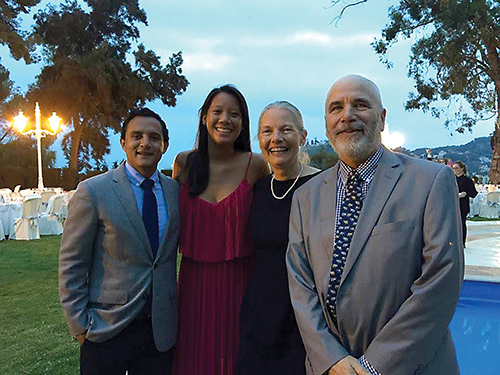
Own Your Data
By “full sovereignty” we mean individual ownership and control (agency) over one’s personal data of all kinds. As medical data have become ever more fundamental, detailed, and extensive, it is increasingly important for individual patients to gain direct control over all their data. Patients need guaranteed access to their data; they need to ensure that their data remain private, and they need their data to be stored in an environment that enables easy collaboration around the data, so that patients and their care providers can most easily identify their best available treatment options.
By “100% member control” we mean that all the voting equity of MyCancerDB.com is owned by its patient-members.
By “accelerating access to a patient’s best available personalized treatment options” we mean enabling patients with cancer to use their most fundamental health data themselves or in partnership with whomever they want, to be able to identify their most promising treatment options.
By linking with preferred providers of analytic and diagnostic tools through its proprietary, cloud-based management system, MyCancerDB.com makes available to its patient-members curated treatment guidance that combines input from human experts with the latest in artificial intelligence (AI) and machine learning.
My Cancer Database
I came to realize that having agency over my data was critically important for identifying the best available treatment options for me as fast as possible, and for enabling me to monitor disease progression and response to treatment better. Once I understood this, the need for something such as MyCancerDB.com became obvious.
MyCancerDB.com is a unique cloud platform designed to serve people with cancer by offering solutions to the following challenges:
- Securing personal ownership and control (agency) over fundamental raw genomic and related health data sets. www.MyCancerDB.com provides its patient-customers with their own individual database “vault” in the cloud. Access to the vault can only be provided directly by the patient.
- Gathering, organizing, and storing your needed genomic and health data. At MyCancerDB.com we help patients gather full clinical sequencing data for their whole healthy genome, their whole cancer genome, their cancer transcriptome, and their microbiome. We organize and securely store all their data, and provide online access to a curated suite of AI-based analytic and diagnostic applications, bundled with human guidance and advice from clinicians and cancer experts.
- Non-portability of huge genomic data sets. Huge (terabyte+) data sets are cumbersome to store and transfer, especially to multiple collaborators or providers. HIPAA regulations also create unintended delays and bottlenecks. With the unique www.MyCancerDB.com cloud architecture, the patient’s data do not move. Physicians, diagnostic tools, and analytics are brought to the data, which reside securely within the patient’s cloud-based data-vault. We turn the existing system on its head. Instead of “the doctor will see you now,” we’ve created “the patient will see you now!”
- Evaluating and integrating your alternative personalized treatment options. Understanding the landscape of your potential treatment options is complex, technical, and confusing to most patients. Through www.MyCancerDB.com, patients gain easy access to a combination of tools and human experts to identify, evaluate, and interpret their treatment options, and get advice on the best treatment choices going forward.
- Monitoring your disease progression and response to treatment. Scandalously poor for many cancer types, in general patients are dependent on occasional scans and blood tests ordered by their physician to monitor their disease; even then, regular blood tests are ordered only if reliable blood markers are known to exist. These tests are typically spaced months apart and provide only retrospective information on the status of the disease and the response to treatment.
At www.MyCancerDB.com, we think most patients can do better by themselves, and we actively seek to enable this. New biomarkers are continually being discovered for many cancers, accompanied by new, more accessible, and more affordable testing techniques and technologies.
This allows MyCancerDB.com to offer access to low-cost, at-home testing tools and services that enable more patients with cancer to self-monitor their disease progression and response to treatment in a better and more affordable way.
Access Your Treatment Options
In the past, the only way patients in the United States could legally access personalized vaccines, such as the neoantigen cancer vaccine I received, was through enrollment in FDA-sanctioned clinical trials; recently, however, new paths have opened up via federal and state “Right to Try” legislation that allows patients who have exhausted all approved treatments to try experimental therapies outside of clinical trials.
Because the technology for creating personalized vaccines is now widely accessible and quite mature, MyCancerDB.com is partnering with the La Jolla Institute for Immunology in an effort to accelerate patient access to personalized therapeutic neoantigen cancer vaccines.
We are working to enable all patients with cancer the benefit of having access to such treatment options! For more information about my personal cancer journey, visit my blog at www.stephenaldrich.com.
Patient Resources
MyCancerDB.com
www.mycancerdb.com
Right to Try
www.righttotry.org
La Jolla Institute for Immunology
https://donate.lji.org/campaign/stephen-aldrich-and-sdcpi-collaboration/c215092





